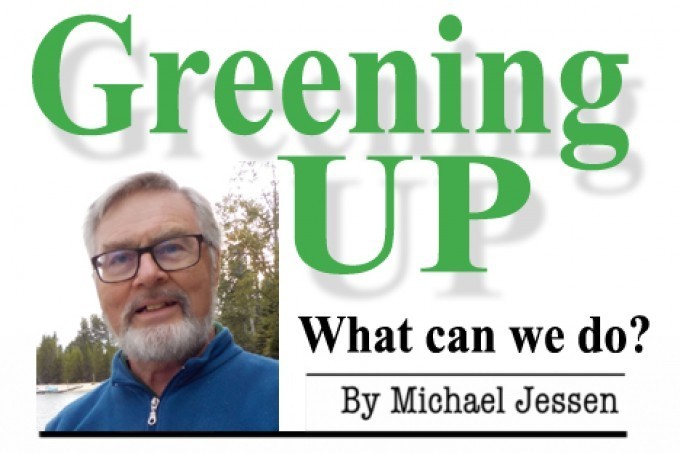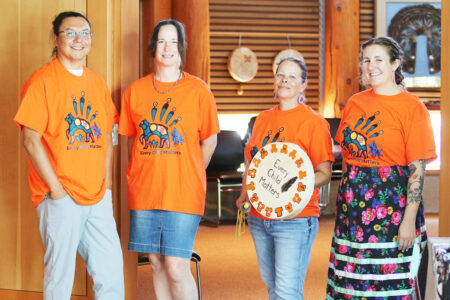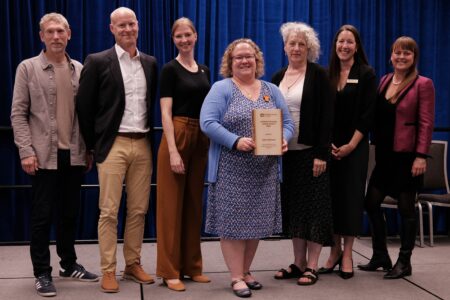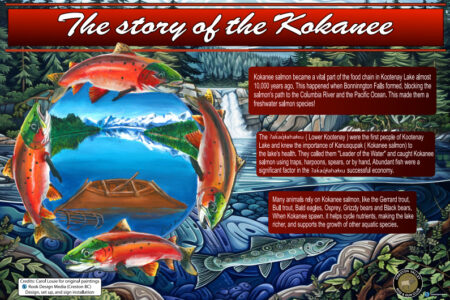Greening Up — Whatever Comes Next
“The whole problem with the world is that fools and fanatics are so certain of themselves and wiser people so full of doubts.” – Bertrand Russell
Since 2007 my writing has focussed almost exclusively on our changing climate. Yet – like life – the concern remains a mystery. And, as the climate emergency intensifies – widening my view of this enigma – it creates more space for uncertainty.
Of course there is no doubt about the existence of climate change – researchers from Switzerland and Norway now claim to have detected the “fingerprint” of climate change in every single day of weather in the global record since 2012.
The changes we humans have made to our climate are now so deeply embedded that climate change is noticeable from any single day of weather at a global scale.
No, the uncertainty rests in unanswered questions: Will humanity respond to this emergency quickly enough? Will we choose the most sensible and sustainable solutions to calm this calamity? Can we unite and agree on a global scale on mitigation measures and adaptation ideas that aspire to reduce and alleviate the distress experienced by the people on the front lines of this crisis?
The latter question was dealt yet another blow late last year when the world community meeting in Madrid passed the buckfor the 25th consecutive year. After struggling into overtime, the longest ever climate summit punted agreement on key issues of the Paris Agreementto the November get-together to be hosted by the UK in Glasgow.
“Hope never abandons you, you abandon it.” – George Weinberg
Ironically, NASA’s Goddard Institute for Space Studiesand the National Oceanic and Atmospheric Administrationhave announced that 2019 was the second-warmest year in the historical recorddating back to 1880 and the 43rd consecutive year (since 1977)with global land and ocean temperatures at least nominally above the twentieth-century average.
Then we got the news that a part of Antarctica reached a temperature above 20°C (64.9 degrees Fahrenheit, to be exact) – apparently higher than that in Los Angeles. The overheating of our southernmost continent is affecting chinstrap penguins, whose population has fallen by half since the 1980s.
It is also alarming that the amount ofheat energy stored in the top 2,000 meters of the ocean was the highest on record in 2019 – in fact the past ten years have been the warmest for the oceans since reliable measurements began in the 1950s.
This was confirmed in a study published in the journal Advances in Atmospheric Sciences. John Abraham at Minnesota’s University of St Thomas and one of the team behind the new analysis said: “Using the oceans, we see a continued, uninterrupted and accelerating warming rate of planet Earth. This is dire news.”
All this news worried the world’s elite business community as they met in Davos, Switzerland for their annual World Economic Forum.
For the first time in its 15-year history, the environment occupied the top five places in the WEF’s annual risks reporton concerns likely to have a major impact over the next decade.
Børge Brende, the president of the World Economic Forum and deputy chairman of the Norwegian Conservative party, put the situation bluntly: “We have only a very small window and if we don’t use that window in the next 10 years we will be moving around the deck chairs on the Titanic.”
Take a minute and think about these facts. Does it change your sense of who we are as humans and how we relate to the world around us?
What does all this news do to our psyche? Is this all today’s information that will be superseded by tomorrow’s new “news”?
And perhaps, most importantly, how do we live this worrisome news? Do we dismiss, disengage, doubt, or get depressed?
Or are we alarmed and concerned enough to respond by realizing the need for reflective and radical change? Will we vow to join and build a movement strong enough to challenge big oil, big business, and the super-rich 1%?
“Isn’t it the moment of most profound doubt that gives birth to new certainties? Perhaps hopelessness is the very soil that nourishes human hope; perhaps one could never find sense in life without first experiencing its absurdity.” – Vaclav Havel
Well, I would say we are experiencing doubt and absurdity in spades. And yeet, amazing and life-changing events occur every day.
Who would have thought that a deadly epidemic in China would curtail energy demand and industrial output to such an extent that it would cut Chinese carbon emissions by almost 100 million metric tons – close to what Chile emits in a year?
Who could have foreseen that a few blockades and protests by angry First Nations’ people and their supporters could bring Canada’s cargo and passenger rail network to an almost complete halt?
Who could have imagined that one Swedish schoolgirl could ignite a worldwide movement by young people to leave their classrooms and demand that their parents and politicians do more to safeguard their future from the ravages of climate chaos?
Who could have guessed that South Korean director Bong Joon-ho’s film that savagely satirizes the struggle between the rich and the poor would take home the Oscar for best picture?
“We have more possibilities available in each moment than we realize.”
—Thich Nhat Hanh
We humans are born with infinite possibilities. When we are young we believe in magic and imagine that anything is achievable. As we age, many of us become beaten down by reality and fears, insecurities and doubt creep in, robbing us of our innate wisdom and the power and magic of curiosity and creation. We become shrink-wrapped by our experiences.
But as the above four examples illustrate, we cannot predict the future or the impact of one action on another. Referred to as tipping points, these are times at which a series of small changes or incidents become significant enough to cause a larger, more important change.
As Malcolm Gladwell states in his book The Tipping Point: “Ideas and products and messages and behaviours spread like viruses do”.
Two months into a new decade, we’re much further ahead in 2020 than we were in 2010. These are some of the ideas, products, and behaviours that are spreading like wildfire:
Young people everywhere are involved either through school strikes, Extinction Rebellion, or divestment campaigns on university campuses.
Women and girls are taking prominent roles in these actions whether they are 17-years-old like Greta Thunberg or 30-years-old like Alexandria Ocasio-Cortez or 81-years-old like Jane Fonda.
More than 1,200 local authorities around the world declared a “climate emergency” in 2019.
Discussion of the need for a Green New Deal is ramping up in Europe, Canada, and the United States. In its various iterations, it seeks to combat climate change, poverty, income inequality, and racial discrimination.
“If you don’t have a dream, how can you make a dream come true?” – Oscar Hammerstein
Municipal governments around the world are committing to be operating on 100% renewable energy no later than 2050, including nine here in the West Kootenay.
Courts are making historic decisions impacting the climate change movement. On December 20, 2019, the Dutch Supreme Court, the highest court in the Netherlands, upheld the previous decisions in the Urgenda Climate Case, finding that the Dutch government has obligations to urgently and significantly reduce emissions in line with its human rights obligations.
The Guardian media outlet committed in 2019 to giving the climate crisis the attention it demands, including eliminating use of the words “climate change”, substituting climate crisis and climate emergency, and refusing advertising from fossil fuel extractive companies.
“Hope is a verb with its sleeves rolled up.” – David Orr
The issuance of green bonds is burgeoning. Since the European Investment Bank created the first green bond, in 2007, over $700 billion of green bonds have been sold by diverse issuers, including corporations, governments, and supranational institutions.
The Connecticut Green Bank has just unveiled its plans to bring to market approximately $15 to $20 million of new $1,000 face value “Green Liberty Bonds” around April 22 in recognition of the 50th anniversary of Earth Day.
In a speech on November 13, 2019, Deputy Governor Martin Flodén revealedthe Riksbank, Sweden’s central bank, sold all of the Alberta bonds that it owned because of the large carbon footprint of the tar sands.
BlackRock, the world’s largest asset manager, has announced it will make climate change central to its investment decisions. BlackRock is the latest signatory to Climate Action 100+, an influential big-money pact that’s pressing many of the world’s largest greenhouse-gas emitters to take action on human-made climate change.
With $6.8 trillion in assets under management, BlackRock’s assets surpass the GDP of every nation on Earth, except the United States and China.
The climate-oriented investment potential under the guidance of Climate Action 100+ now exceeds $41 trillion.
“The world is teeming. Anything could happen.” – John Cage
Fossil fuel giant BP – the world’s largest oil and gas company – has promised to cut its carbon emissions to net zero by 2050. Bernard Looney, BP’s new chief executive, said that it was “no longer enough” to provide reliable and affordable energy, it had to be cleaner too. The company said it would need to “fundamentally transform” itself to meet its net zero ambition.
While greenhouse gas emissions grew 15% over the past decade, the global economy grew by 45%. On average, economic growth outstripped emissions growth by 2.4 percentage points per year.
In 2017, a report by the World Resources Institute showed that there were 49 countries, representing 36% of global emissions, which have already passed peak emissions. Almost the whole of the OECD is reducing its carbon footprint, even when you adjust for imports.
Morocco, Gambia, India and Costa Rica are top of the class in scaling back carbon emissions. Greenhouse gas emissions have already peaked, and are continuing to fall, in 30 major cities including New York, London and Paris.
The all-in cost of generation for solar photovoltaics without tracking systems has tumbled 83% since 2009, reaching just $51 per megawatt-hour.
That new figure, and a closely matched equivalent for onshore wind of $47 per MWh, down 49% over the decade, means that two-thirds of the world population are living in countries where either solar or wind is now the cheapest choice for electricity generation in terms of all-in costs.
Global sales of passenger EVs have jumped from 448,000 in 2015 to 1.9 million in 2018, and are expected by Bloomberg New Energy Finance to hit 2.3 million in 2019. That is only the start – BNEF’s Long-Term Electric Vehicle Outlook, predicted that electric cars would undershoot conventional models on both upfront and lifetime costs by the mid-2020s, and would take 30% of global light-duty vehicle sales by 2030, and 57% by 2040.
“All that we are is the result of what we have thought. The mind is everything. What we think, we become.” – Buddha
Our current environmental problems are human problems; we caused them so it’s our job to fix them.
The 2020s are the decade to turn good intentions into impactful action and slay the dragon that is warming our world.
Something IS going to happen next; the only wonder is what our individual role will be in that next. The world will be how we make it. I am, and you are, capable of making choices. I am, and you are, responsible for them.
When it comes to assuming responsibility for our lives and the future we want to impact, computer scientist Alan Kay said it perfectly: “The best way to predict the future is to invent it.”
“Every great dream begins with a dreamer.” – Harriet Tubman
The more we can talk about climate chaos to friends and family, and about why WE personally care, the bigger impact we can have. Addressing global warming can only be done on a massive, collective scale. That’s why I keep writing about it – to enlist you to the cause.
A crisis brings with it opportunity. We may be standing on the brink of disaster, but we are also on the cusp of awesome and transformative change.
Let’s join together with others to take action, to speak the truth about what we are facing, and to know that whatever comes next we will confront it with a passionate dedication to bettering our own lives and those of future generations..
As Roger Waters sings on the Pink Floyd song from the album Dark Side of the Moon: “Breathe, breathe in the air, don’t be afraid to care.”
“The only limit to our realization of tomorrow will be our doubts of today.” – Franklin D. Roosevelt
Michael Jessen is an ecowriter who lives at Longbeach, near Balfour, British Columbia. He is the author of more than 800 articles on recycling, waste reduction, simple living, and climate change. He can be reached by email at [email protected]

























